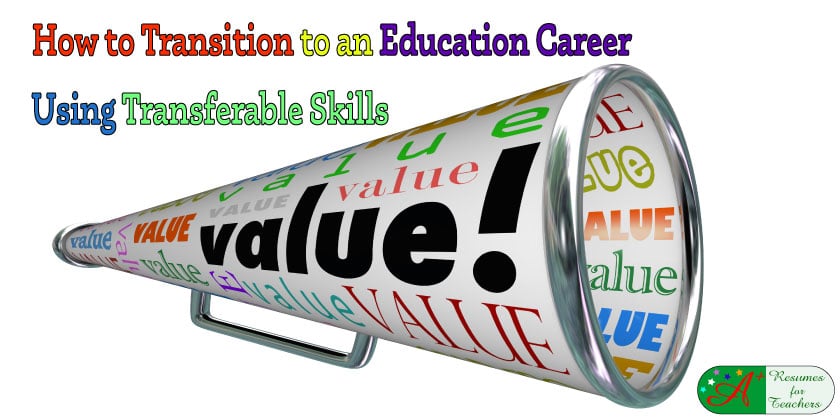Making a career shift to the education sector can feel like a bold and intimidating move, especially if your background is rooted in a different industry. However, the good news is that many skills gained in other professions are highly valuable and transferable to teaching, school administration, or other education-related positions. The key is learning how to identify, highlight, and position these skills effectively on your resume and during interviews.
In this article, you’ll learn how to uncover and present your transferable skills to demonstrate your value to prospective school districts and educational institutions.
Why Transferable Skills Matter in an Education Career Change
One of the biggest challenges career changers face is creating a compelling, education-focused resume without traditional classroom experience. The trick is to strategically emphasize your transferable skills — those core abilities developed in other roles that can seamlessly apply to an educational environment.
Think of transferable skills as the professional glue that holds industries together. Whether you’ve worked in corporate training, customer service, healthcare, sales, or finance, chances are you’ve cultivated competencies that align with educational roles.
For example:
A corporate trainer like DeShawn Morales developed public speaking, instructional design, and coaching skills while leading employee workshops. These skills directly translate to classroom management, lesson planning, and student engagement in an educational setting.
The Three Categories of Transferable Skills
To simplify identifying your skills, group them into three primary categories: People, Data, and Equipment. This framework ensures you cover a wide range of competencies relevant to education positions.
1. People Skills
These are perhaps the most essential in any education-related role. They involve interaction, communication, leadership, and collaboration.
Examples include:
- Public speaking and presenting
- Coaching and mentoring
- Conflict resolution
- Team leadership
- Active listening
- Cultural sensitivity
Example:
Rina Patel, a former hospitality manager, consistently coached staff on customer service excellence, de-escalated guest issues, and conducted team training sessions. These experiences equipped her to handle parent-teacher conferences, student behavior management, and collaborative projects with teaching staff.
2. Data Skills
The ability to collect, analyze, and report data is crucial in education. From tracking student progress to managing school budgets, data literacy is indispensable.
Examples include:
- Record-keeping and documentation
- Budgeting and financial reporting
- Research and data analysis
- Evaluating outcomes
- Developing reports
Example:
Calvin Ortega, a market analyst, was responsible for interpreting sales trends, compiling weekly reports, and adjusting business strategies. In an education role, these skills are ideal for analyzing student assessment data and developing improvement plans.
3. Equipment and Technical Skills
With technology integration in modern classrooms, comfort with various tools and systems is a valuable asset.
Examples include:
- Operating SMART Boards
- Managing learning management systems (LMS)
- Basic troubleshooting of classroom technology
- Microsoft Office Suite proficiency
- Audio-visual equipment operation
Example:
Anita Desai, previously an office administrator, managed inventory systems, set up video conferencing equipment, and created Excel-based reports. These skills transitioned smoothly into setting up classroom technology and supporting digital learning initiatives.
How to Showcase Transferable Skills on Your Education Resume
Once you’ve identified your skills, the next step is to strategically present them on your resume. This involves placing them where hiring managers will immediately notice their relevance.
Start with a Highlights of Related Expertise Section
Position a bulleted list at the top of your resume under a heading such as Highlights of Related Expertise or Relevant Skills and Competencies.
Example:
Highlights of Related Expertise
- Experienced in coaching and mentoring diverse teams
- Skilled in public speaking, training delivery, and curriculum development
- Proficient in data analysis and progress reporting
- Adept with Microsoft Office and SMART Board technology
Support Skills with Tangible Examples
Don’t stop at listing skills — provide context by explaining how you’ve applied them in real situations. A helpful approach is to answer the following:
- What challenge did you face?
- What action did you take?
- What were the results?
Example:
Challenge: Low engagement in weekly team meetings.
Action: Designed interactive workshops to replace traditional presentations.
Result: Increased staff participation by 45% and improved knowledge retention, a strategy easily adapted to classroom settings.*
Identifying Accomplishments for the Resume Work History Section
Use your job history section to expand on accomplishments that demonstrate your transferable skills. Be sure to quantify results wherever possible to add credibility.
Example:
Organized and facilitated a staff development program, leading to a 25% increase in customer satisfaction scores — a skill directly applicable to student workshops or extracurricular activities.
These accomplishments reinforce your ability to deliver outcomes in an educational setting.
Why This Process Builds Confidence
Answering the challenge-action-result questions isn’t just about resume content. It also boosts your confidence as you realize the breadth of your skills and how well they align with education roles. It’s empowering to see how your professional story fits into the educational world.
Final Thoughts: Don’t Underestimate Your Experience
Your past work experiences hold more value than you might think. By thoughtfully identifying and presenting your transferable skills, you can confidently transition into a career in education and position yourself as a qualified candidate.
Need Help Making the Leap?
If you’re considering a career change into education, we’re here to help. Our expert team can assist you in crafting a tailored resume, uncovering your transferable skills, and preparing you for the exciting opportunities ahead.


